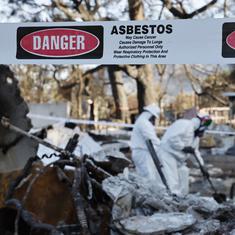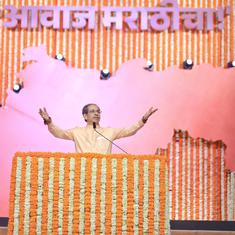Allow authorities to issue ‘no caste, no community’ certificates: Madras HC to Tamil Nadu
The intention of a person to shun religious and caste-based identity was laudable, said the bench.

The Madras High Court has directed the Tamil Nadu government to issue orders empowering revenue officials to grant “no caste, no community” certificates to applicants, Live Law reported on Thursday.
In the order pronounced on Tuesday, a bench of Justices MS Ramesh and N Senthilkumar observed that the intention of a person to shun religious and caste-based identity was laudable, The Hindu reported. It would promote the prohibition of caste-based discrimination, it added.
The court was hearing an appeal against a single judge’s order from February 2024.
The judge had dismissed a petition filed by a man who was seeking a government certificate stating that he and his family belonged to no religion or caste, Live Law reported. While he acknowledged the man’s request, the judge noted that the government had not empowered tehsildars to issue such a certificate.
Allowing a writ appeal against the order on Tuesday, the High Court said that the single judge appeared to have been “misguided” by an additional government pleader’s argument that revenue officials were not empowered to issue “no caste, no community” certificates, The Hindu reported.
The bench added that “even otherwise, when there is a constitutional mandate under Article 25 of the Constitution, the revenue authorities cannot wriggle out of this constitutional obligation by quoting absence of any rule or GO [government order] to that effect”.
Article 25 guarantees freedom of conscience and free profession, practice and propagation of religion.
The court directed the Tirupattur collector and tehsildar to issue the certificate to the appellant within a month.
Authoring the verdict, Ramesh wrote that in India, religion and caste are two social identifiers that influence several aspects of life, including personal identity, politics and social interactions.
“While the Constitution prohibits caste based discrimination, caste and religion still play a significant role in social life, politics, education and employment through reservation policies,” he said.
Ramesh added that the appellant’s desire to shun caste and community will be an eye-opener for like-minded citizens.









